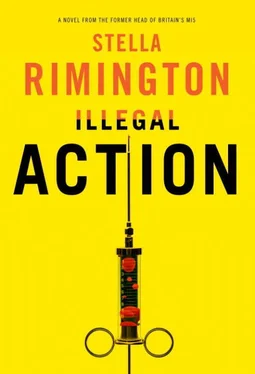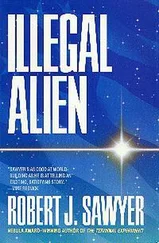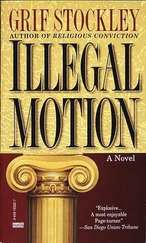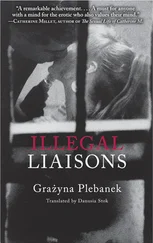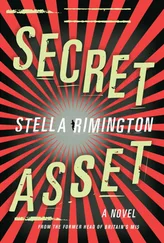Wetherby, knowing Fane, thought it likely that he had played more of a part in the decision than he was admitting. “What evidence was there to link this supposed plot with Brunovsky?”
“None,” said Fane easily, glancing over before looking out the window again. “But the coincidence of hearing about a plot and Rykov’s pass at the bodyguard seemed… too much of a coincidence. In any case, even if there wasn’t a link, the fact that Rykov was suborning a Brunovsky retainer suggested Moscow had an interest in the man that couldn’t be entirely healthy.”
“That’s precisely my point: surely it was a job for Special Branch, not us.”
Fane kept his gaze firmly on the river, making it clear he wasn’t prepared to argue. Wetherby shook his head, then gestured for Peggy to continue.
“Liz entered the Brunovsky household, posing as a history of art student—she spent a week in Cambridge being intensively tutored on Russian modernists, including a painter called Pashko whom Brunovsky was especially interested in. Brunovsky recently bought a Pashko that had long been thought lost.” She looked studiedly at Wetherby. “It was rediscovered in Ireland, where Brunovsky is now, searching for another long-lost Pashko.”
“This is starting to sound preposterous,” said Wetherby acidly.
Fane laughed sharply enough for Peggy to look startled. Wetherby could see she too was worried about Liz. How differently we are each showing our concern, he thought: Peggy grows even more serious, Fane laughs and I get impatient with the mess I’ve inherited.
Peggy described what she and Liz had discovered about the people in Brunovsky’s circle—his girlfriend had been an upmarket prostitute, his decorator and his personal banker had been in cahoots smuggling antiquities out of Italy. Pretty squalid, thought Wetherby, but hardly surprising, and almost certainly unconnected to Moscow. He said as much, and for once Fane turned around. “I agree,” he said.
“Whatever you think,” said Peggy fiercely, and both Wetherby and Fane looked at her with surprise, “Tutti was found dead in his flat. It looked like suicide, but Liz has her doubts.”
“Well…,” said Fane, not without a note of condescension.
“And I agree with her,” said Peggy quickly. Good for her, thought Wetherby. She’s got nerve. “Tutti’s wrists were slit with a Stanley knife. Liz was mugged, outside the safe flat, and her attacker threatened her with a Stanley knife as well.”
“I didn’t know that,” said Fane sharply. He pulled over a chair and sat down next to Peggy, all languor gone.
“And then just to complicate things further, we were told that there might be an Illegal operating in the UK.”
“Is that relevant to all this?” asked Wetherby.
“We didn’t think so at first,” said Peggy. “But I do now. There’s a Danish woman who calls herself Greta Darnshof—she’s editor of a new art magazine and she knows Brunovsky well. We’ve just learnt from PET in Copenhagen that the real Greta Darnshof died nearly forty years ago.”
“Is this Darnshof in Ireland?” asked Fane.
“I don’t know for sure, but she may well be. Her office said she was ‘travelling.’”
“What’s her role in all this?”
“I don’t know exactly but I think she was the woman who tried to harm Liz. I can’t prove it, but it certainly looks that way.”
Fane broke the momentary silence: “I can’t believe they’d want to harm Brunovsky: killing him in Ireland wouldn’t be any better in PR terms than killing him here.”
“So why do they want him in Ireland?” asked Wetherby.
“Because I think they’ll abduct him and take him back to Russia. That’s a lot easier to do in Kilkenny than Eaton Square.”
“Killarney,” said Peggy pedantically.
“But couldn’t Brunovsky see the danger?” Wetherby broke in. “Why on earth did he agree to go to Ireland?”
Peggy spoke up. “Liz says he’s desperate to get this other painting. Apparently another oligarch, a man called Morozov, also wants the picture. He and Brunovsky have got some sort of long-standing rivalry. Liz said that once Brunovsky learnt that Morozov was also on the trail, there was no stopping him.”
“Morozov?” said Fane.
“Who is he?” asked Wetherby, almost resignedly. To him these people were like characters in a play. He wondered how many acts there were to be in this drama.
“He made his fortune in industrial diamonds,” said Peggy. “Before that he was KGB, postings in New York and East Germany. We thought he might be planning something against Brunovsky on personal grounds—there’s history between them. But we just don’t know.”
Wetherby turned to Fane, who was looking as if there was something he wanted to say but couldn’t quite get out. I’ll wait, thought Wetherby, and said nothing until the silence became strained. At last Fane broke it. “Liz asked us to find out about Morozov and I gave her a fairly detailed report from our station in Moscow. I told her he was posted in East Germany where he had a heart attack in 1989 and was sent home. But there was something else I didn’t tell her. I didn’t think it was relevant and the information wasn’t mine to give. But I think I should tell you now.”
He paused, weighing his words with care. “During his last few years in the KGB, Morozov was recruited by the West Germans. He was an agent-in-place for the BND all the time he was in East Germany. He was in the KGB station in Dresden. One of his KGB colleagues there was Vladimir Putin.”
Wetherby lifted both arms in disbelief. “I would have said the plot thickens, if it weren’t like treacle already. So where does that put Morozov in all this?”
“Not in Ireland, I hope,” said Fane. “But it may be relevant that he’s not altogether what he seems.”
“I’m not sure Brunovsky is either,” said Peggy quietly.
None of these people are, thought Wetherby. I just hope Liz realises that. It would have been nice if Fane had let us know this earlier. As if reading his thoughts Fane said quietly, “Sorry about that, Charles. Third-party information, you know, and it didn’t seem relevant at the time.”
Wetherby sighed. He was thinking that things had to be dire indeed when Geoffrey Fane apologised.
“We’d better be going,” Brunovsky announced, looking at his watch anxiously. “Jerry, get the car round. We’ll be with you in a moment.”
But before Jerry could get up, the door opened. Liz found herself staring at what, at first sight, could have been an apparition. It was an old lady, with flowing hair the colour of snow. She wore a long embroidered cotton nightdress and slippers that scuffed the floor as she walked into the drawing room with slow regal steps. Her grey-blue eyes were blank, her lips set in a rigid smile. She’s mad, thought Liz.
In a pure high voice, more English than Irish, the apparition spoke. “Welcome to Ballymurtagh. We do not often see visitors nowadays, but please make yourselves at home.”
Liz noticed Brunovsky looking at Greta with astonishment. “Tonight,” the old lady was saying, “we shall have music. There will be dancing for those who like…” A girlish coyness crept across her face.
Greta signalled to Dimitri, who went over to close the door, just as Svetlana ran in, her handsome Slavic face drawn and frightened. “I am sorry—she got away from me,” she said, and started towards the old lady, reaching for her arm. But her target skipped forward out of reach. “Ha ha,” she cried with delight, and Liz realised she was back in the nursery.
Greta moved quickly as if to grab the old lady, but it was Svetlana she was aiming for. The Danish woman approached the girl with her hands by her sides, then suddenly her right arm swung up and crack, with her open hand she struck Svetlana on the face. The noise was like a pistol shot. And Svetlana reeled back. In the utter silence that followed, the only movement came from the old lady, twirling her index finger into her hair.
Читать дальше
